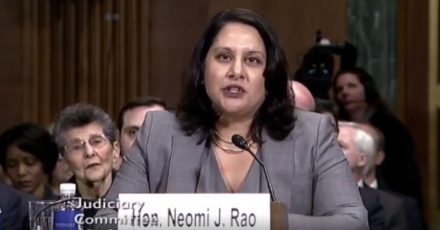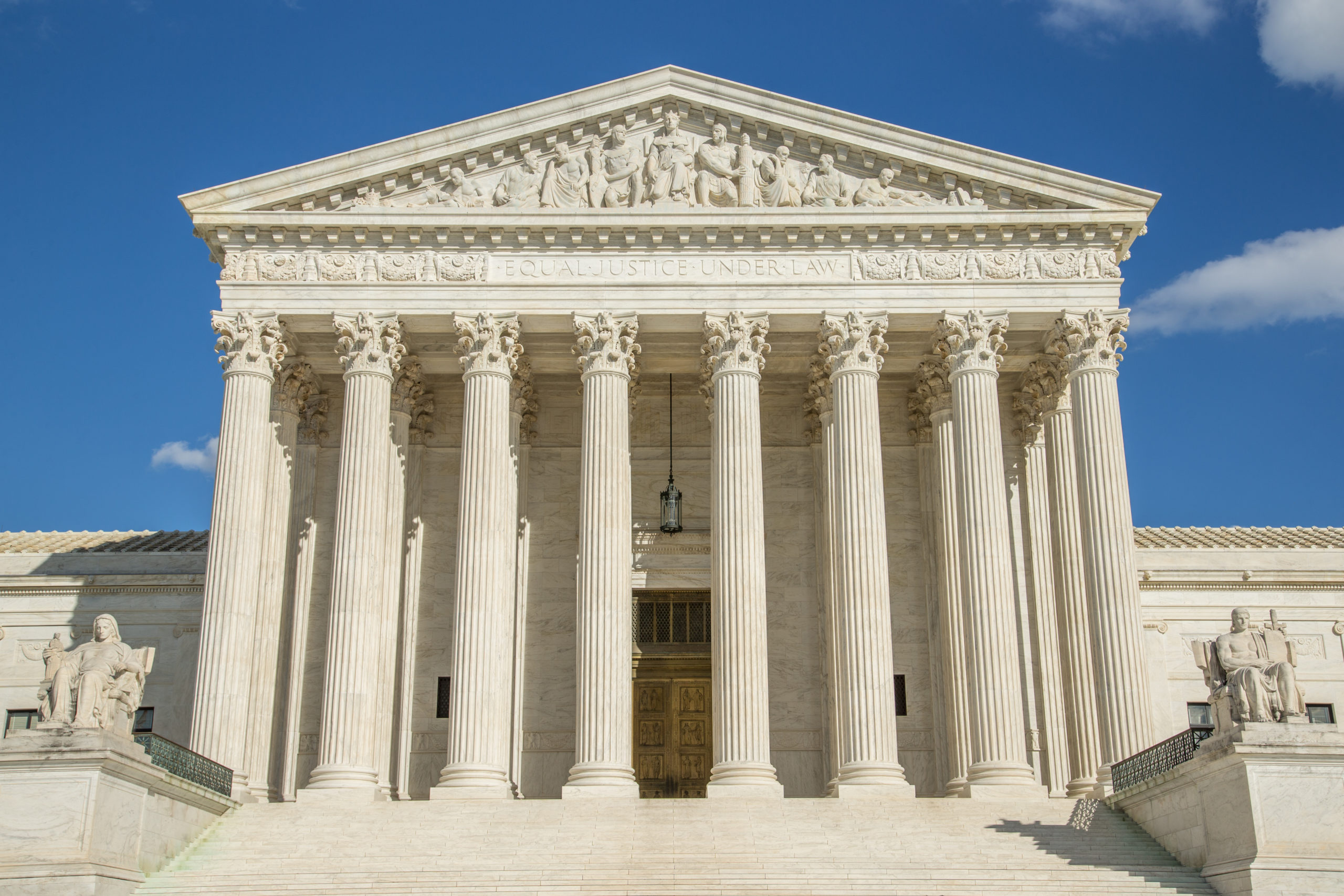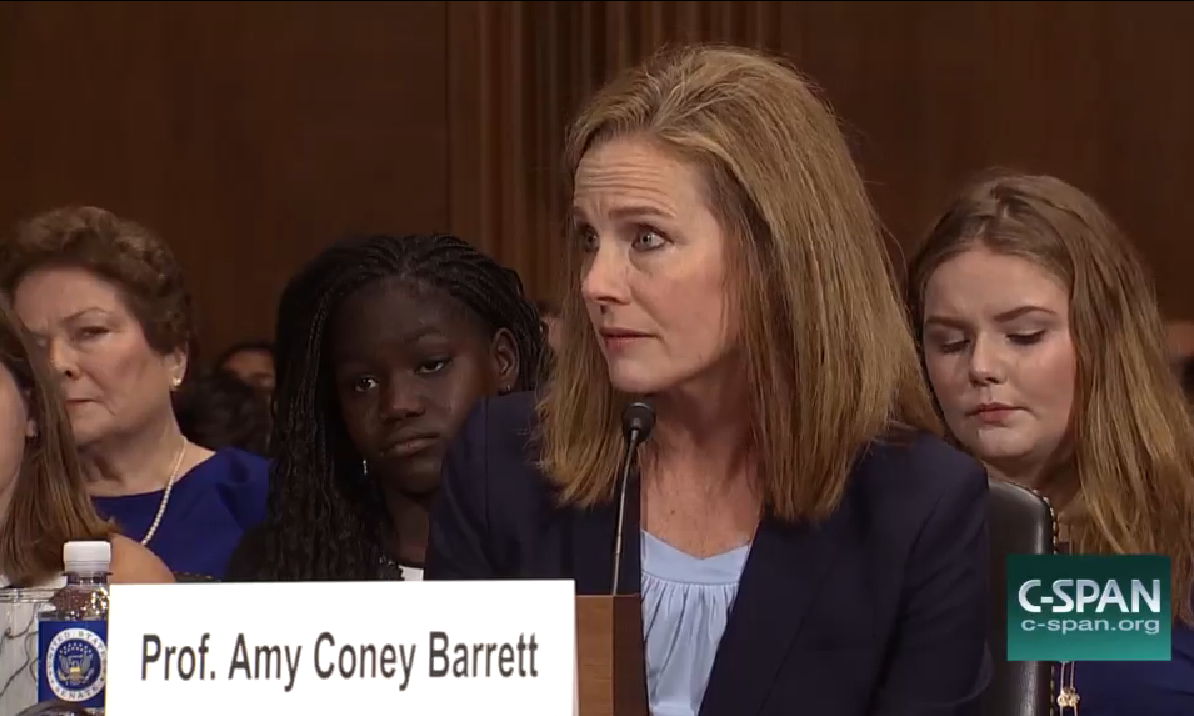Five Things You Should Know About D.C. Circuit Nominee Neomi Rao

 Neomi Rao is Trump’s pick for a lifetime position on the D.C. Circuit. Rao has been in the spotlight recently because of her appalling writings that range from rape apologist pieces from college to defending the cruel practice of dwarf-tossing to doubting the legal framework of Roe v. Wade. If these disturbing opinions don’t raise enough red flags, Rao has been able to act upon her views on these critical issues through her role as Administrator for the Office of Management and Budget’s (OMB) Office of Information and Regulatory Affairs (OIRA). In this role, she has repeatedly ignored the costs and real-life impacts that a range of rules proposed by the Trump Administration would have on women. It is rather ironic, given her views about sexual assault, that she has been nominated to fill the seat vacated by Brett Kavanaugh, who was confirmed to the Supreme Court despite credible sexual assault allegations against him.
Neomi Rao is Trump’s pick for a lifetime position on the D.C. Circuit. Rao has been in the spotlight recently because of her appalling writings that range from rape apologist pieces from college to defending the cruel practice of dwarf-tossing to doubting the legal framework of Roe v. Wade. If these disturbing opinions don’t raise enough red flags, Rao has been able to act upon her views on these critical issues through her role as Administrator for the Office of Management and Budget’s (OMB) Office of Information and Regulatory Affairs (OIRA). In this role, she has repeatedly ignored the costs and real-life impacts that a range of rules proposed by the Trump Administration would have on women. It is rather ironic, given her views about sexual assault, that she has been nominated to fill the seat vacated by Brett Kavanaugh, who was confirmed to the Supreme Court despite credible sexual assault allegations against him.
Last week, the Senate Judiciary Committee held a confirmation hearing on Rao’s nomination. This is by no means an exhaustive list of the problems with Rao’s nomination, but here are five things you should know:
- Rao wrote articles where she condones victim blaming and perpetuates rape culture. Rao believed that women who become drunk are to blame if they are sexually assaulted while inebriated, stating that “unless someone made her drinks undetectably strong or forced them down her throat, a woman, like a man, decides when and how much to drink. And if she drinks to the point where she can no longer choose, well getting to that point was part of her choice.” She then stressed that “a good way to avoid a potential date rape is to stay reasonably sober.” Rao also advanced the harmful narrative that women frequently make false rape accusations because they want to avoid responsibility for deciding to engage in sexual activity, claiming that “casual sex for women often leads to regret… this, in turn, can force women to run from their choices and actions.” When given a chance to renounce her previous comments at the hearing, she instead maintained that “women should take certain steps to avoid becoming a victim” and that these are “common sense observations.” Earlier this week, Rao sent a mea culpa letter to the Senate Judiciary attempting to explain away her writings, but the damage to survivors is done. We are not fooled by her claims of evolved thinking after she rolled back protections for survivors of sexual assault in her role at OIRA.
- Rao made offensive and disparaging statements about race and diversity. Rao’s viewpoints on race and diversity are just as problematic. She once wrote in an article that “in this age of affirmative action, women’s rights, special rights for the handicapped and welfare for the indigent and lazy, elitism is a forgotten and embarrassing concept.” She called affirmative action “the anointed dragon of liberal excess” and claimed that Yale “drops its standards only for a few minorities.” She also made dismissive statements about those who critique racism and sexism, arguing that “myths of sexual and racial oppression… create hysteria and finally lead to the formation of some whining new group.” Yes, these articles are from her college days, but when Rao was given an opportunity to clearly reject these early writings about race at her hearing, she instead just chalked up her highly problematic statements to “youthful idealism.” This is a rather poor excuse for having such extreme views on race and diversity. During the hearing, Rao also refused to say that Brown v. Board was correctly decided, which really should be an easy question to answer.
- Rao expressed hostility towards reproductive rights. Rao wrote law review articles attacking the Court’s decisions in Roe v. Wade and Planned Parenthood v. Casey. In an 1998 article, Rao questioned the legal framework of Roe, arguing “the Court uses esteemed philosophers to legitimize a controversial perspective. By contrast, there were many persuasive legal arguments against recognizing a constitutional right to abortion.” And, just as recently in a 2011 law review article, Rao criticized the Casey decision for focusing on “the inherent dignity of a woman’s freedom to choose an abortion.” When asked at her hearing if she believes Griswold v. Connecticut and Roe v. Wade were correctly decided, she just parroted the non-answer line given by most Trump nominees: “It was a precedent of the Supreme Court that I will faithfully follow,” a meaningless promise given that as a circuit court judge, she would be bound to follow Supreme Court precedent.
- As head of OIRA, Rao’s unacceptable positions on women are reflected in her decisions that ignore the harm to women. With Rao as lead of the office, OIRA has approved a series of actions by the Department of Education (DOE) that would encourage, and sometimes require, schools to set up unfair procedures that disadvantage survivors of sexual harassment, including sexual assault, and raise the threshold for when schools must respond to sexual harassment, including sexual assault, against students and employees. OIRA approved these proposed Title IX changes and in doing so, completely ignored the cost to students—such as the costs of sexual assault to a student’s education and the costs to survivors when a school fails to address sexual assault or other forms of harassment. Instead, OIRA just considered the cost-savings for schools who would do fewer investigations because the proposed rule would require dismissal of many sexual assault reports.OIRA also has consistently dismissed the impact on women and families when approving proposed regulations relating to reproductive health care. For example, when OIRA considered a proposed rule that would radically restructure the nation’s Title X family planning program, it failed to undertake a full analysis of the rule’s economic impact on families, which it was required to do. OIRA also failed to fully calculate the costs consumers would have to incur if a proposed rule that would unnecessarily and dramatically disrupt the way insurers could offer comprehensive health insurance plans that include abortion coverage were to take effect.
- Rao blocked actions that would help workers who face pay discrimination or harassment. In her role as OIRA Administrator, Rao blocked, with little explanation or justification, a critical Equal Employment Opportunity Commission (EEOC) equal pay measure intended to help uncover pay discrimination and close the wage gap. Rao issued a terse one and a half page memo, asserting that the measure “lacked practical utility” and was “unnecessarily burdensome” to businesses, without offering any evidence to justify those claims. Rao’s decision protected corporate employers, allowing them to continue to hide pay discrimination, instead of prioritizing working women and people of color who experience pay discrimination.Rao’s agency was also involved in stalling the approval of an EEOC guidance that explains and confirms important protections for individuals who experience sexual harassment in the workplace, which includes harassment based on gender identity or sexual orientation. OIRA has sat on the Harassment Guidance for over 14 months, even though the chair of the EEOC and a number of employer groups called for it to move forward.
Given all of these harmful writings and actions she has taken where women, people of color, and other marginalized populations bear the brunt of impact, we were concerned about her nomination going into the hearing. And, rather unfortunately, Neomi Rao did very little in her hearing to assuage our concerns about her problematic views and actions and how this history would impact her decision making on the court. In Rao’s cost-benefit analysis, women always pay the price.




